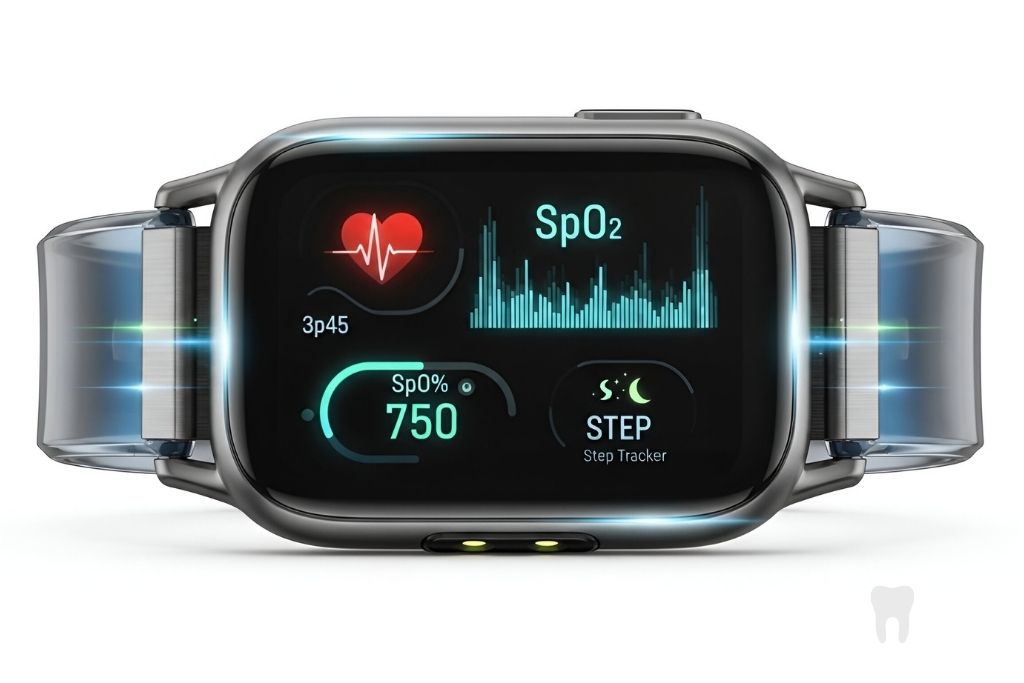Common Health Problems Routine Blood Tests Can Reveal

Blood tests are among the most critical diagnostic tools in healthcare, offering important information about overall health and diagnosing possible medical conditions. They are used to detect infection, evaluate the function of organs, and manage chronic diseases like heart disease and diabetes. Blood tests taken on a routine basis can be early warning signs, enabling healthcare professionals to recognise and treat problems before they become severe. Through the detection of abnormal blood conditions, these blood tests aid in receiving timely intervention and improved treatment results.
Why Are Blood Tests Important?
Blood tests are also very important in determining possible health issues before they become symptomatic. Through the examination of different blood components, the tests identify infections, deficiencies and chronic conditions at an early point. They also come in handy when determining the function of organs such as the kidneys, liver and thyroid to ensure these essential systems function optimally.
Besides identifying conditions, blood tests are necessary for determining the efficacy of treatments. For patients who have conditions like high cholesterol or diabetes, frequent testing allows medical professionals to monitor progress and modify treatments based on the findings. Preventive health check-ups, which usually involve regular blood tests, are important for ensuring long-term health. With the identification of risk factors at an early stage, doctors can provide lifestyle modifications and medical interventions that prevent severe complications.
Most Popular Blood Tests and Their Uses
Complete Blood Count (CBC)
A complete blood count or CBC is a basic blood test that quantifies various elements of the blood, such as red blood cells, white blood cells, platelets, haemoglobin and haematocrit. It gives important information regarding overall wellbeing and is used to detect various conditions.
Physicians utilise CBC results to identify infections, anaemia, immune system diseases and blood clotting disorders. Red blood cell counts reflect the efficiency of oxygen transport throughout the body, whereas white blood cell counts will identify infections or immune-related disorders. Platelet counts are important for blood clotting, with abnormal results potentially suggesting bleeding disorders. A CBC is usually part of routine check-ups and is frequently the starting point for the diagnosis of underlying disorders.
Lipid Panel (Cholesterol Test)
A lipid panel examines your blood cholesterol levels to evaluate your risks of cardiovascular disease. In involves checking low density lipoprotein (LDL) or ‘bad’ cholesterol, high density lipoprotein (HDL) or ‘good’ cholesterol and triglycerides.
Elevated LDL cholesterol can lead to build-up of plaque in artery walls, raising the risk of stroke and heart attack. HDL cholesterol, however, serves to transport excess cholesterol out of the blood, lowering cardiovascular risk. Triglycerides, another type of blood fat, also may signal elevated risk of heart disease if they are high. Periodic cholesterol testing serves to control heart health through recommendation of lifestyle changes and, if required, medication.
Liver Function Tests
Liver function tests help to examine protein and enzyme levels in the bloodstream to assess liver health. They play a crucial role in detecting conditions like fatty liver disease, liver cirrhosis and hepatitis.
The important markers are alanine aminotransferase (ALT) and aspartate aminotransferase (AST), which aid in detecting inflammation or damage to the liver. Bilirubin level reflects how efficiently the liver is handling waste, and albumin and total protein levels evaluate liver function and nutritional status. Liver function tests are usually prescribed for patients with alcohol history, obesity, or inexplicable weakness.
Kidney Function Tests
Kidney function tests compare blood levels of creatinine and blood urea nitrogen (BUN) to determine the kidneys’ ability to remove waste from the blood. Tests are crucial for identifying kidney disease and tracking such conditions as high blood pressure and diabetes.
High levels of creatinine or BUN can be an indicator of impaired kidney function, and may need to be followed up on. For patients with chronic kidney disease, frequent testing assists with the management of the illness and avoids complications like hypertension and fluid overload.
Blood Glucose Test
A blood glucose test involves a measurement of sugar in the blood and is used to diagnose and manage diabetes. Various tests of glucose exist, such as fasting blood glucose, HbA1c, and random blood sugar tests.
Fasting blood glucose indicates the ability of the body to control sugar after a period of overnight fasting. The HbA1c test is a measure of average blood glucose levels for the last two to three months and provides an overall picture of control of diabetes. Elevated glucose levels may point to diabetes or prediabetes, and low levels can be an indicator of hypoglycaemia.
Thyroid Function Tests
Thyroid function tests check thyroid-stimulating hormone (TSH), triiodothyronine (T3), and thyroxine (T4) levels to determine the health of the thyroid. Thyroid function tests are used to diagnose thyroid disease, including hypothyroidism and hyperthyroidism.
Fatigue, changes in mood, sudden weight loss or gain, and hair thinning are common symptoms that lead to thyroid testing. Imbalanced thyroid hormone levels can have a detrimental effect on metabolism, energy, and your overall wellbeing.
Electrolyte Panel
An electrolyte panel tests potassium, sodium, chloride and calcium in the blood. Adequate electrolyte balance is critical to hydration, nerve function and muscle contractions.
Imbalances can be due to dehydration, kidney disease or side effects of medications. Confusion and fatigue are symptoms of low or high sodium levels, and abnormal potassium levels can impair heart function. Ongoing electrolyte testing maintains appropriate body function and avoids complications.
How to Prepare for a Blood Test
Fasting Requirements
Certain blood tests like cholesterol or glucose tests need you to fast for accurate results. It is usually recommended to fast for 8 to 12 hours from before the test, which means absolutely no food or drink other than water. The healthcare provider will give you specific instructions about what to prepare prior to your test, based on what type of blood test you are undertaking.
What to Expect During the Test
A blood test, whether it’s a routine check or a private blood test London patients book for convenience, is usually done by taking a tiny amount of blood from a vein in the arm. It does not take long, and it causes little pain. Results of most tests are ready in a few days, and your doctor will talk them over with you.
Conclusion
Blood tests are a crucial component of detecting and preventing health issues, enabling early diagnosis and better treatment results. Frequent screenings assist in testing organ function, diagnosing infections, and checking for chronic diseases like heart disease and diabetes. Through regular blood testing, individuals can assume responsibility for their health and take care of potential problems before they escalate.
Lareal Young is a legal professional committed to making the law more accessible to the public. With deep knowledge of legislation and legal systems, she provides clear, insightful commentary on legal developments and public rights, helping individuals understand and navigate the complexities of everyday legal matters.
Recommended For You
Heart disease remains one of the leading causes of illness and death in the UK, but early detection can make
In the UK, we are fortunate to have one of the most robust sexual health frameworks in the world. Whether
Few experiences are as disruptive as a persistent, throbbing toothache. It’s the kind of pain that doesn’t just stay in
Browse by Category
- Travel
- Technology & Gadgets
- Sports & Games
- Software
- Shopping
- Reviews
- Real Estate
- Numerology
- News
- Make Money
- Lifestyle
- Law
- Home Improvement
- Health
- Gardening
- Games
- Finance
- Entertainment
- Education
- Digital Marketing
- Diet and Fitness
- Dating
- Construction
- Celebrity
- Career and Jobs
- Business
- blog
- Angel Number




